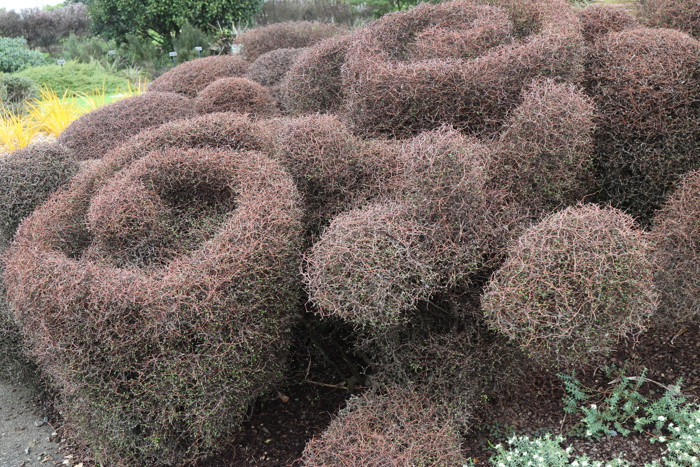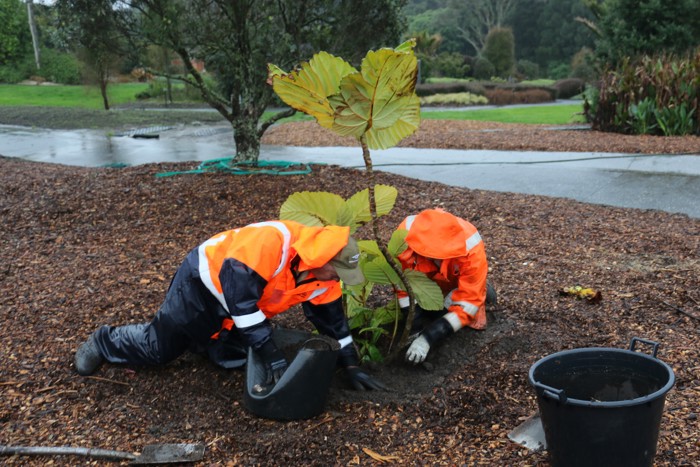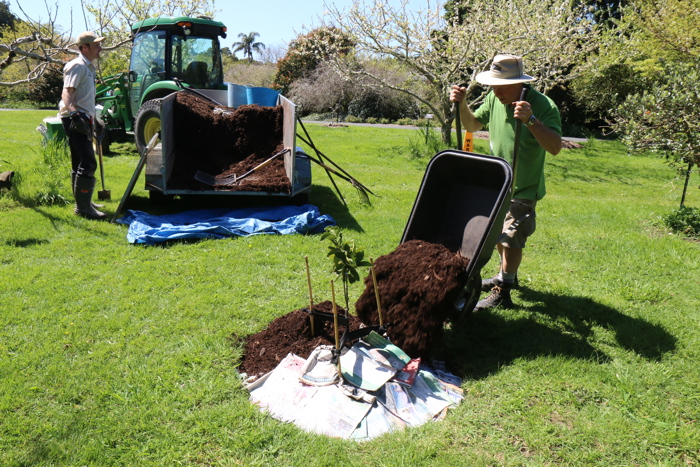
Tips for garden resilience in a changing climate
As we face the challenges of climate change, Aucklanders will need to adapt the way we approach gardening. Curator Barbara Wheeler offers some tips for keeping your garden healthy and resilient despite rising temperatures.
Choose plants that can cope well with hot dry conditions
Plants with small or thin leaves lose less water, like grasses or smaller-leaved plants such as coprosmas and muehlenbeckia. Those with thicker leaves or hairy undersides, commonly found in coastal plants, are better at conserving water. Grey or silver leaves are good at reflecting heat.
For container gardening, selecting drought-tolerant plants is crucial as containers typically require consistent watering.
The Plants for Auckland database is a valuable resource for choosing plants suited to various conditions.

Muehlenbeckia astonii
Plant at the right time
Once you have the right plant, the next step is to plant at the right time, usually after the first autumn rains through until the beginning of spring.

Plant after the autumn rains and before the soil starts to dry in spring.
Water wisely
Water deeply but less often, to encourage strong root development. A good soak two or three times a week is more effective than a light watering every day. Ideally, watering should be done in the early morning, late evening, or overnight.
When watering new shrubs and trees, it’s important to water regularly for the first two years of a plant's life to establish a robust root system. "If you restrict the water, you won’t encourage the strong, deep rooting structure," Wheeler cautions.
Install a rainwater harvester to conserve water during dry periods and use it to water your garden.
Trap moisture in the soil
An essential aspect of gardening in Auckland's climate is moisture retention. "Mulch, mulch, mulch," Wheeler says. Mulching should be done when the soil is still moist to lock in the water. Add a thick layer of mulch such as pea straw, compost or bark to your soil to conserve moisture.
Wheeler advises checking the depth of soil moisture by putting a finger into the soil. Soil should be moist down to knuckle depth. Learn about mulch.

Mulch, mulch, mulch to lock in soil moisture.
Create shady areas
Create shaded areas in your garden to lower temperatures and protect both plants and people from heat stress. Plant shade-loving plants in the shade. Wheeler emphasises the simple strategy of "right plant, right place."
Make your garden more flood resistant
To protect your garden from the effect of floods, choose plants that act like sponges, such as harakeke or oioi.
Visit our beautiful botanic gardens or explore the website to find out more about the best plants for Auckland’s climate.